Joe Haldeman is someone who needs no introduction but we’ll do one anyway. Haldeman is the author of the science fiction classic The Forever War. Published in 1974, it is one of the best depictions of war and all of its complexities and horrors available to readers. The book is no stranger to awards and frequently appears on ‘best of’ lists. Haldeman intimately understands the burden of war, conscripted to serve during Vietnam, The Forever War is Haldeman’s response to that conflict. Of course it is much more than that, it is a meditation on soldiers and what governments ask of them. It’s a reflection on the nature of war itself, who or what it serves, and the shock of coming home to a life that no longer feels like their own.
In December 2017, Titan Comics published the graphic novel adaptation of The Forever War. The book was adapted by Haldeman, his wife Gay and the artist Marvano. In January I sent off some questions to Haldeman as he and the team at Ttitan prepare their upcoming release The Forever War: Forever Free due out in April 2018. We talked about the nature of science fiction, war, and what it’s like adapting a novel into graphic form.
Haldeman gave high praise for the Belgium artist Marvano who had previously worked with him on the 1988-1989 trilogy adaptation of The Forever War published by Aire Libre. The two have remained close friends, of the graphic novel translation Haldeman said: “That translation was almost all Marvano’s work, and genius. Part of the nature of collaboration is one artist knowing when to back off and let the other one create.”
Science fiction has a way of getting into our brains, delivering messages to us about our current reality that non-fiction often has a difficult time with. I find myself circling back to this quote from the late Fahrenheit 451 author Ray Bradbury, “Science fiction pretends to look into the future but it’s really looking at a reflection of what is already in front of us.”
It’s that very element that The Forever War gets right. A non-fiction book could try to explain the way soldiers experience time and change, it could tell us how warped and distorted life becomes through anecdotes but it may still feel only exist in the abstract to the reader. In The Forever War we experience these changes, the sort of whiplash soldiers face between serving and coming home through time distillation. It takes that abstract feeling of lost time out into a place our brains can engage with it. The graphic novel’s depiction of Mandella’s return to Earth clearly sticks out in my mind. The Earth and family Mandella left no longer exist. In their place is something else entirely, new social customs, new norms, new government organizations that Mandella is overwhelmed with upon his return. With these things in mind, I asked Haldeman how Science Fiction might help us translate messages in ways non-fiction may not otherwise be able to.
Haldeman: “This is really the central “message” of the book. The returned soldier really can’t communicate to his loved ones the magnitude –indeed the essential nature – of what he’s been through. The Kantian Ding an Sich quite literally.
Science fiction is a powerful tool, of course, for dealing with stories that are formally “philosophical” in this way. SF gives the author a specific kind of separation from his own culture, a kind of irony that’s unrelated to humor. (I would say “subsumes” humor, which is a weirdly self-referential statement! But not inaccurate.)”
Ayres: “I saw in one of the Accelerated Life Situation Computer (ALSC) sims there’s a prop plane with the Iron Cross– this very stark imagery– this very identifiable image of the enemy. But we see (especially through Mandella’s interaction with the Taurans) that being an enemy or identifying who, what, or why a thing, person, place, is an enemy is much more difficult than a simulation or training would indicate. I’m wondering if you could reflect on what you believe this story tells us about where humanity finds itself today? There seems to be as much a need as there ever was to define who the enemy is… is that human impulse? Is it just the perversion of power?”
Haldeman: “This is true enough, but really is such a broad statement that it would apply to most postmodern writing about modern warfare. The impulse to react instead of listen is something The Forever War takes on. We’re left to wonder what might have happened had humans been patient with the Taurans? Would the outcome have been different? Do you think we ever learn from war? Is war avoidable? Is it more or less avoidable today?
“This is pretty much the central “message” of the book’s ending. War is avoidable if and only if we can rise above that part of “being human” that sees violence as a tenable solution to social problems. I do realize that this is tiresomely simple-minded to a certain class of intellect.”
There’s always some things you miss out on when you submit interview questions in writing but one thing I knew I was missing from Haldeman was his sense of humor. I asked him to recommend some of his other works to new readers who have discovered his writing through the graphic novel, to which he said: “I think they should all buy a dozen copies of all my books and give them to their friends. And enemies.”
Ayres: “I read an interview you did with Locus Mag in 2012 where you said:
‘‘One of the big problems of science fiction is, ‘How did you get there from here?’ As close as ten, 15 years in the future, you don’t automatically have things changing without progress in some direction. Even if the ‘progress’ is catastrophic, there has to be an intervening past. You do have to think about that, if you’re the right kind of science fiction writer. In my SF from the past decades, when I tried for realism it was like a kind of controlled cynicism – about politics and religion and things like that. This century is pretty much the way I predicted it, in terms of negative aspects. None of what are now current events have proven me wrong.”
“Given all that has occurred in the last six years, how do you feel about the century now?”
Haldeman: “Since the last American election , I do believe that nothing is so absurd that it’s impossible.”
I ended our interview by asking the author if he wanted to share any tidbits about the upcoming release of Forever Free? Haldeman, in what I believe to be a very Twainsian like response said, “There are always rumors about movies being made of The Forever War and its sequels. I sincerely hope to live long enough to see at least one of the rumors come true.”
Here Haldeman clearly references the long running rumor-mill that has churned around the movie adaptation of The Forever War. For Haldeman’s sake and fans alike, I too hope to see one of those rumors come true. In the mean time, I’ll settle for reading (and rereading) his works.
Below you’ll find an advanced preview of the upcoming graphic novel The Forever War: Forever Free from Titan Comics. The Forever War: Forever Free #1 will be available in comic shops and on digital platforms in April 2018.
Synopsis from Previews World:
Inspired by Haldeman’s own Vietnam War experiences, The Forever War series tells the story of William Mandella — survivor of a catastrophic interstellar war. Mandella, together with a small group of human survivors, returns to Earth to find the human race greatly changed.
Evolved into a group mind called Man, society is now intrusive and autocratic, denying all individuality. The veterans plan to escape by means of space travel, but, when their ship starts to fail, Mandella’s team begins to search for the enigmatic entity responsible: The Unknown.
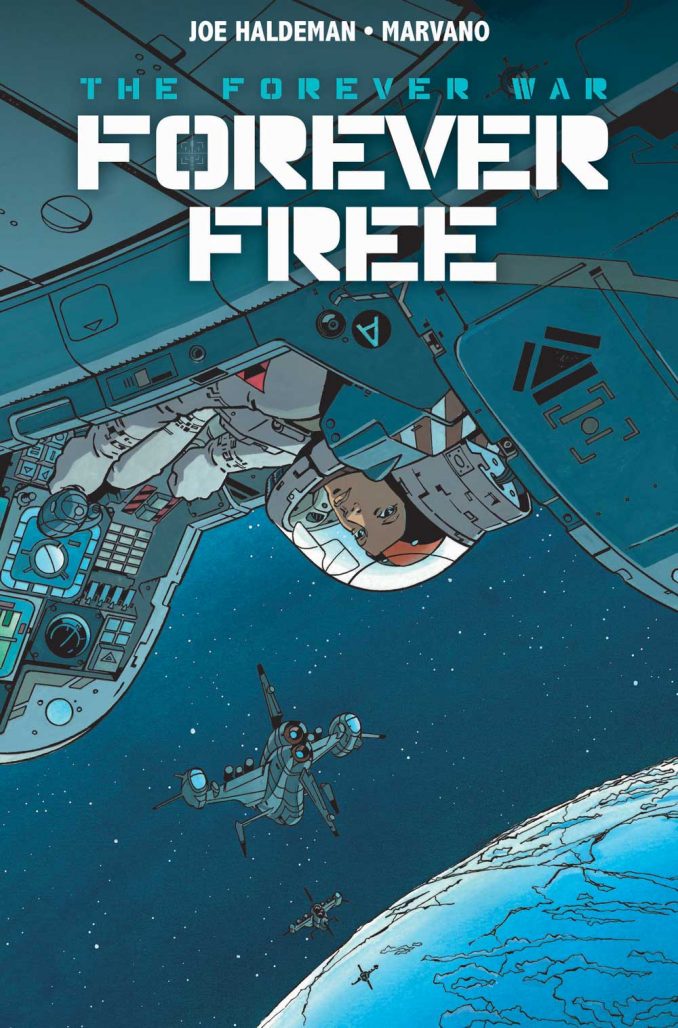
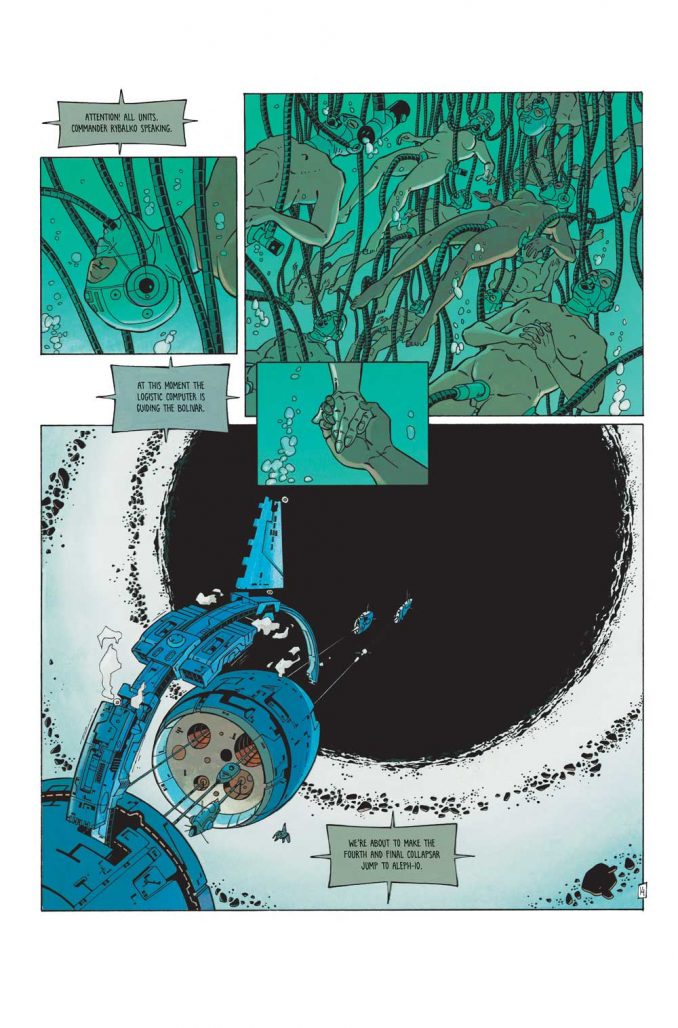
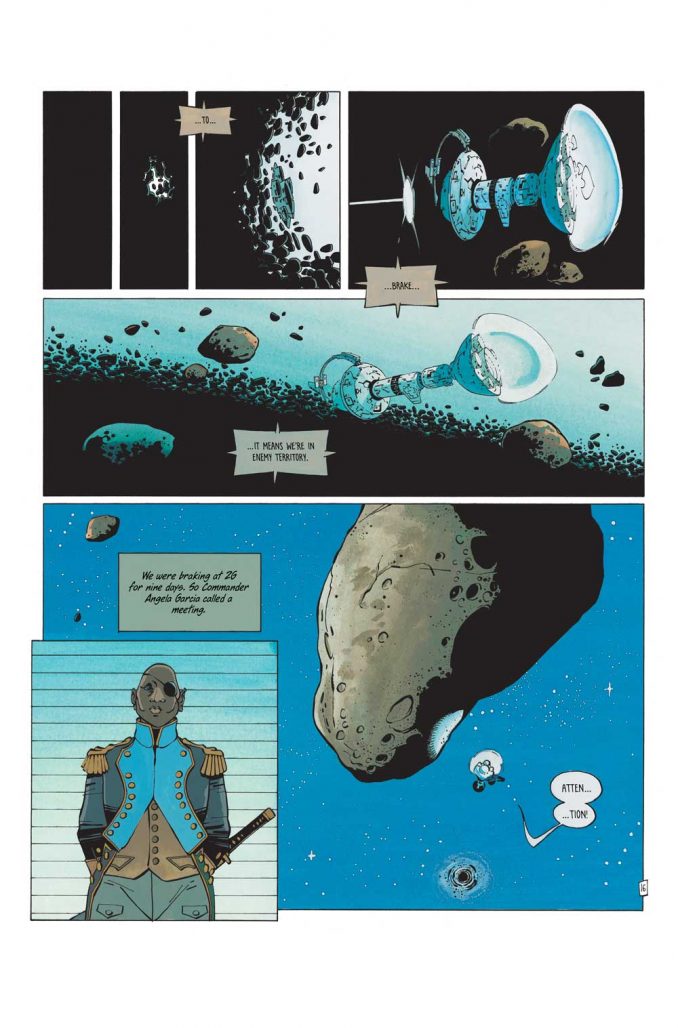
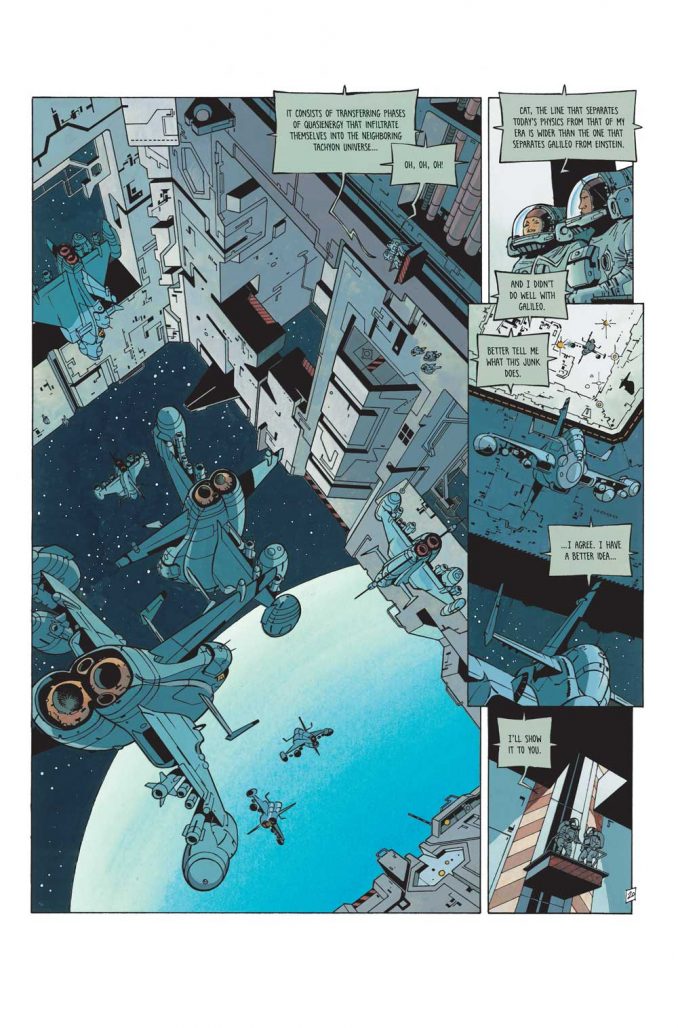
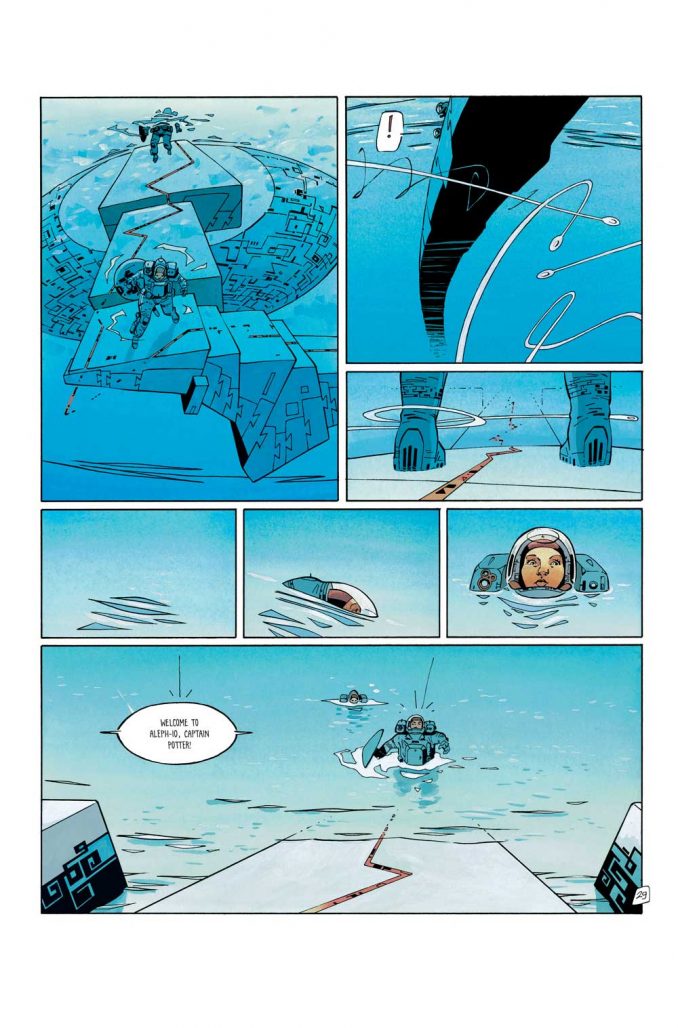
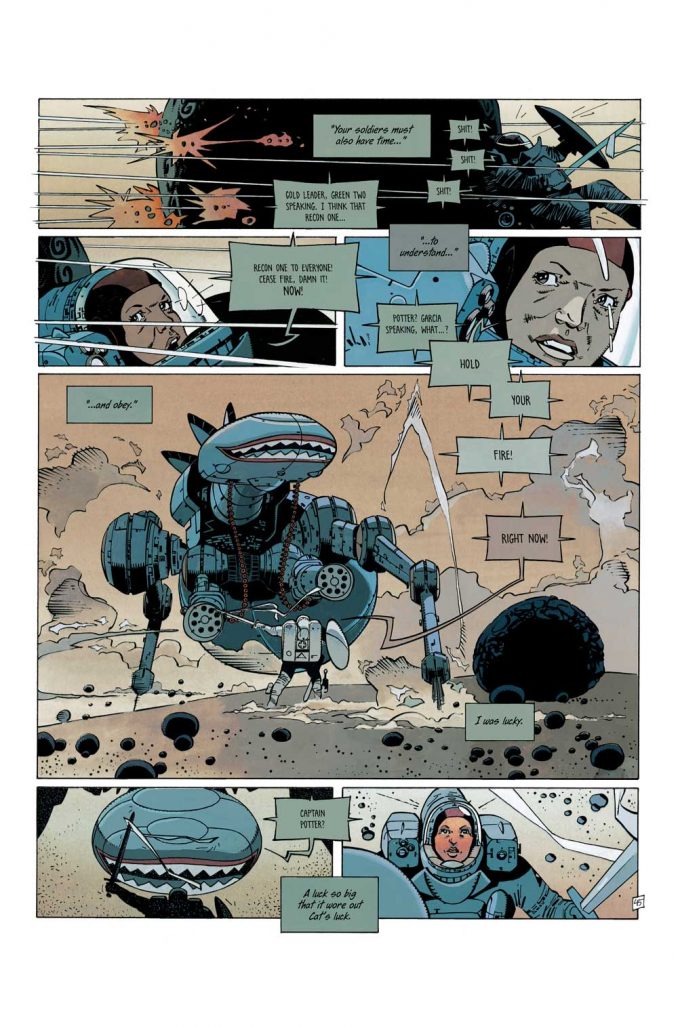


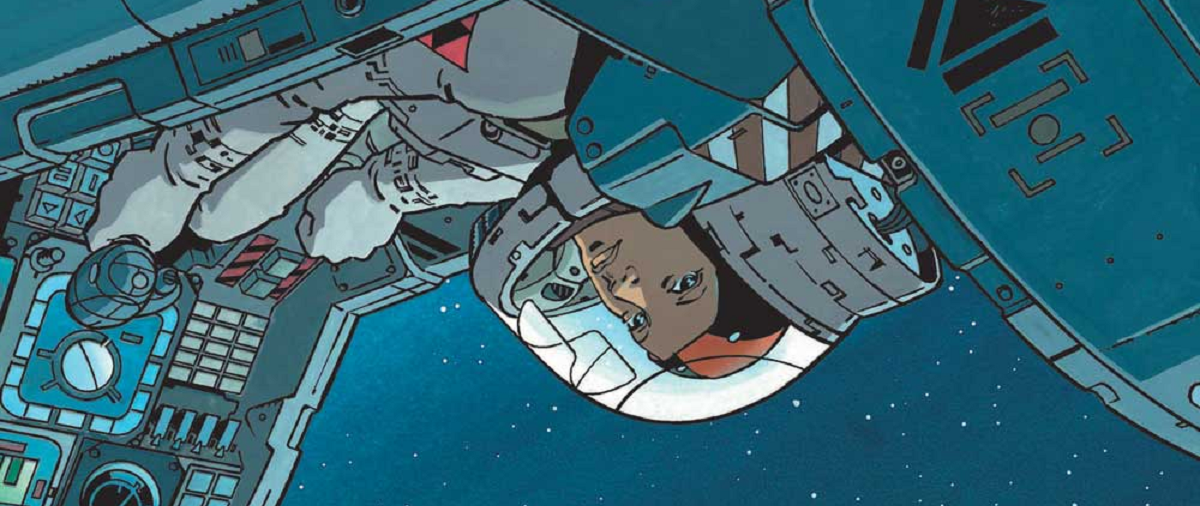
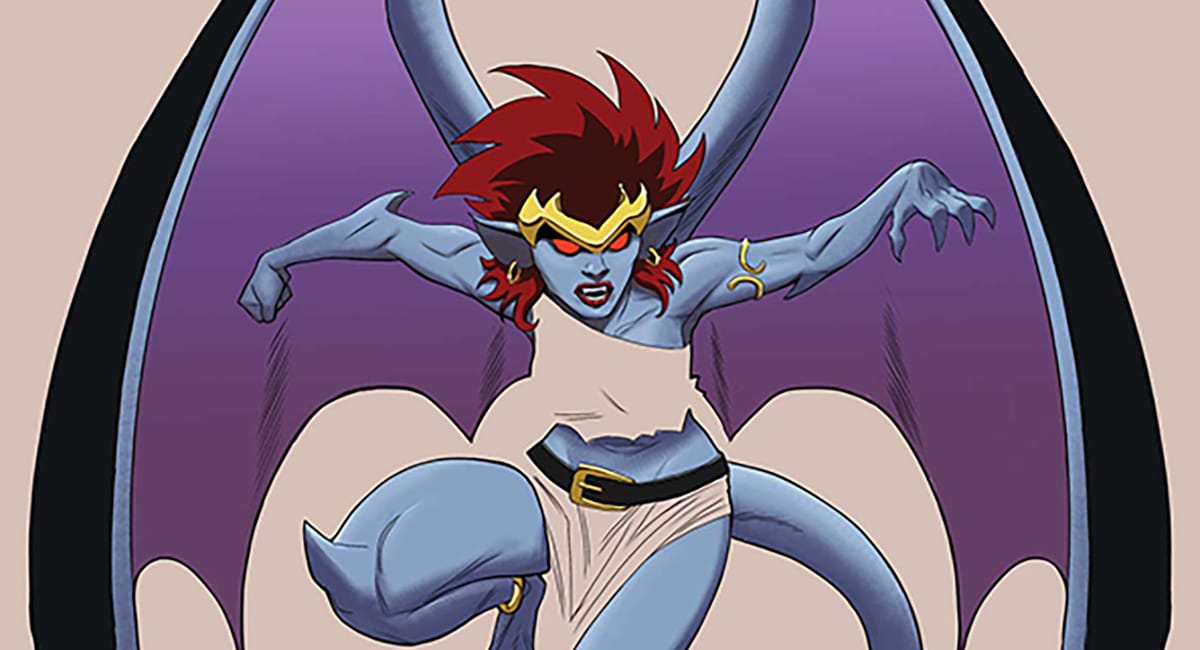

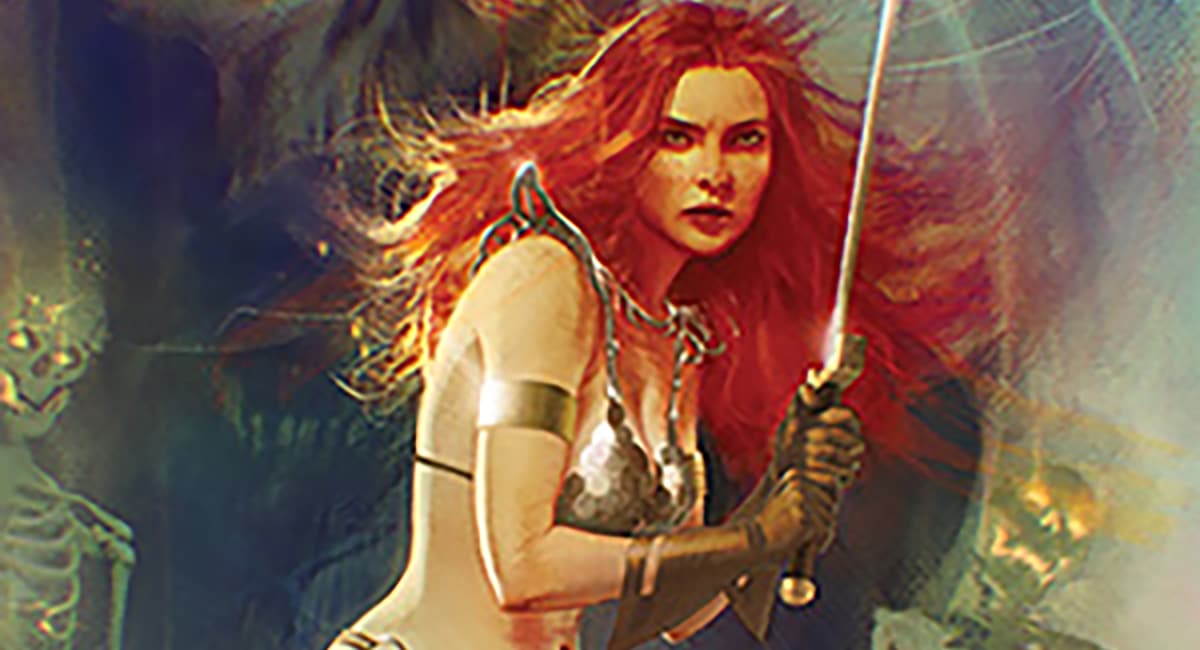


Wow, Marvanao does beautiful work! He just gets better and better.
Ah, so is the last year’s release from Titan a different adaption than the older trilogy? I have fond memories of reading the 80’s one, so it certainly still interests me, but it’s a surprise if it’s an entirely new adaptation by mostly the same creators. And is what’s released this year a continuation then?
One of the things that struck me when I read the book for the first time a few years ago is the attitude toward sexuality as well. Mandella feels out of place when attitudes have changed, but there’s no railing or distaste, just a sense that society picks what it accepts and that it changed. It just felt refreshing to encounter something like that–dissonance without fighting.
Comments are closed.